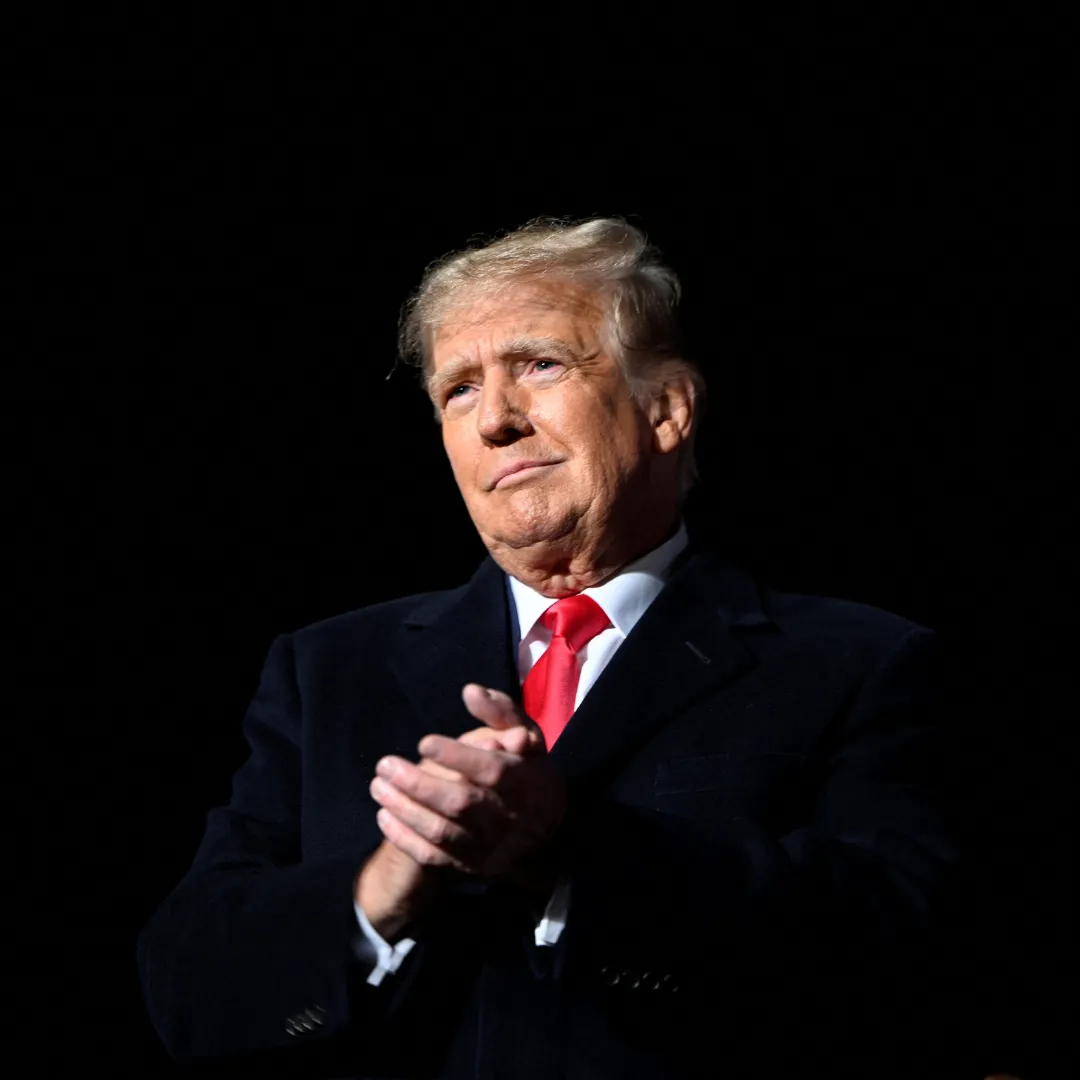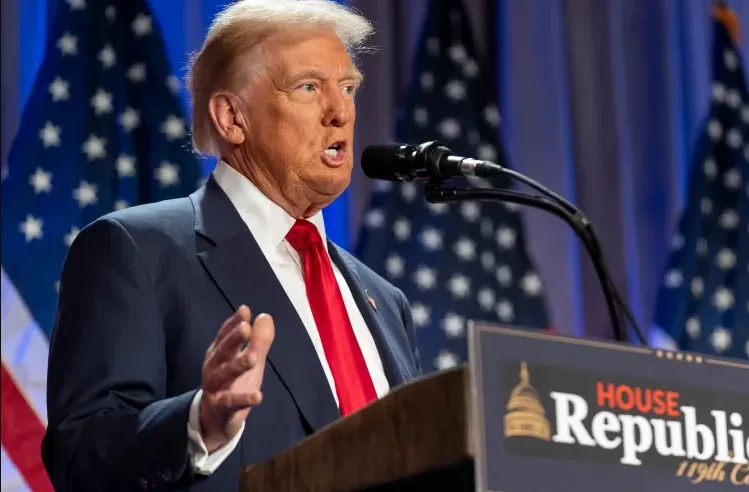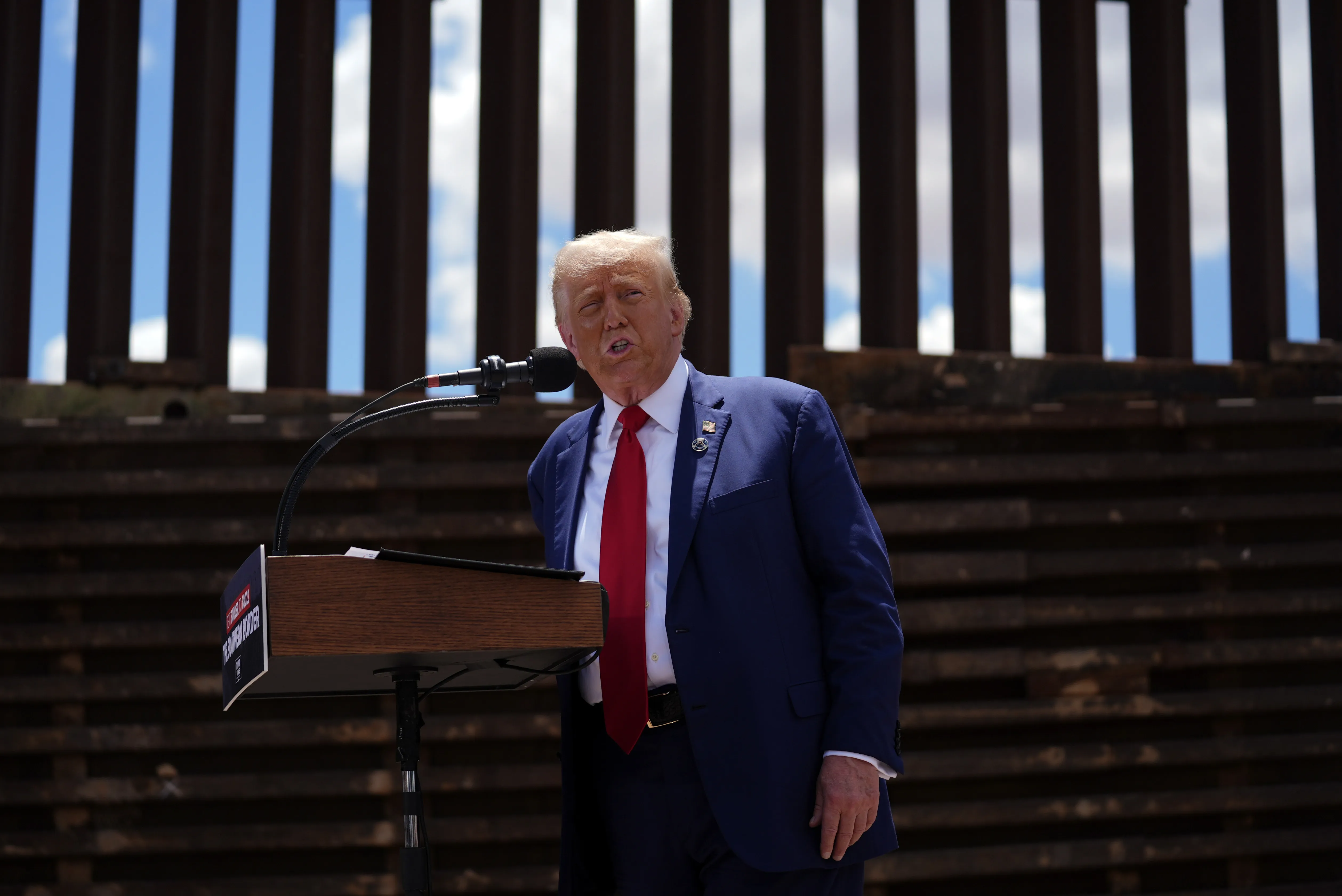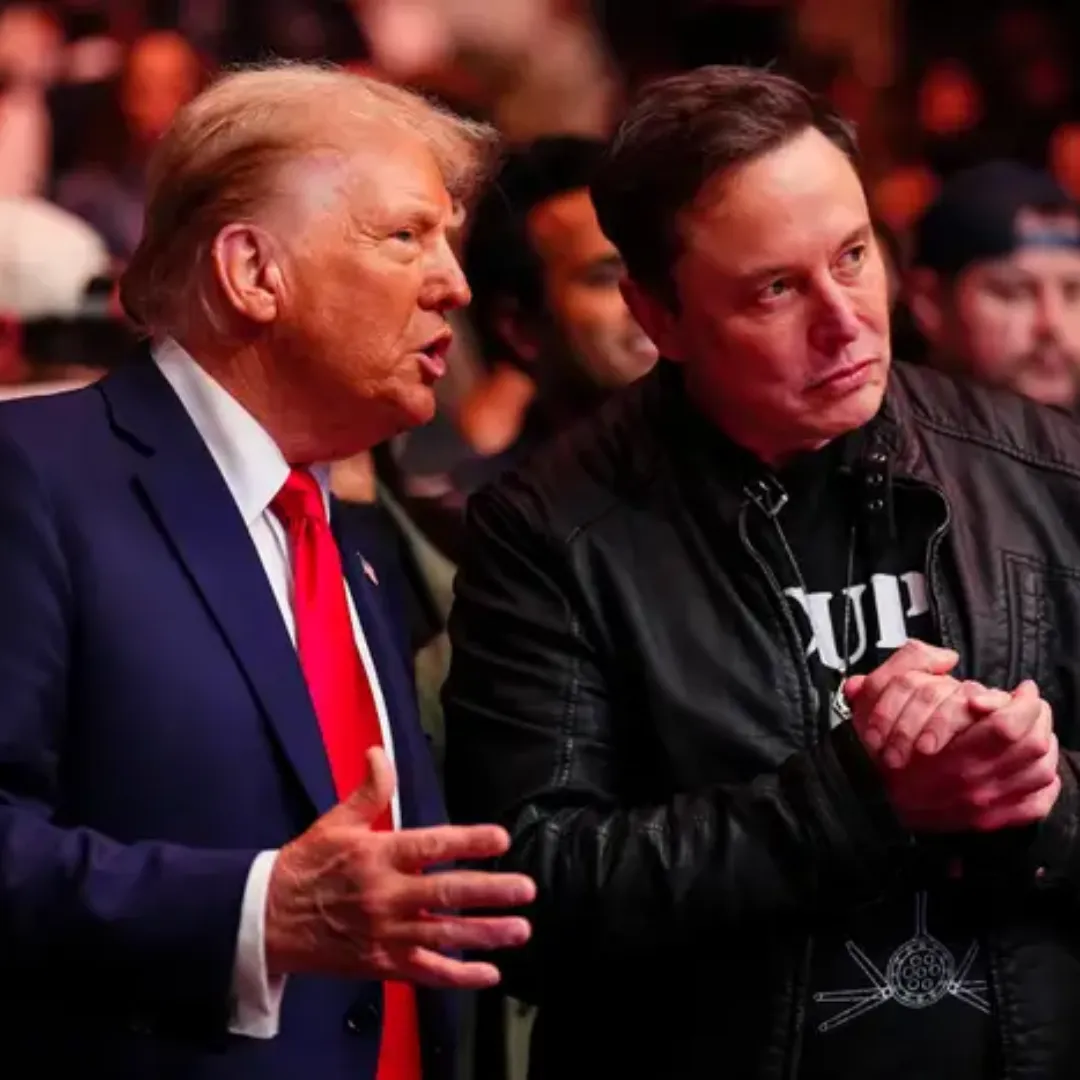
As President Donald Trump nears his 79th birthday in June, the national conversation about his health has reignited — not just because of his age, but because of his decision to take a cognitive test during his annual physical.
Trump, ever the self-promoter, framed the test as an effort to distinguish himself from President Joe Biden, the 46th president, who has faced repeated questions about his cognitive abilities.
“I took — I wanted to be a little different than Biden. I took a cognitive test. I don’t know what to tell you other than I got every answer right,” Trump told reporters aboard Air Force One as he traveled to Florida. “Overall, I felt I was in very good shape. Good heart. A good soul. Very good soul.”
The announcement, made by the president himself, comes as his team prepares to release the results of the cognitive test and his physical exam, which Trump said would be made available this weekend. Trump’s remarks underscore how, for the 2024 presidential race, the health of both candidates will continue to be a point of intense scrutiny.
For Trump, who will be 79 in June and could potentially serve until the age of 82, the focus on health — particularly cognitive health — raises significant questions about the physical demands of the presidency and whether the public will take these concerns seriously, given Trump’s unorthodox leadership style.
Trump has long been known for his boastful style, and his cognitive test results fit neatly into his public persona. In 2020, during his first term as president, Trump often bragged about his performance on the cognitive test, highlighting his ability to memorize words and answer questions correctly. He told reporters that the test was “very easy,” drawing attention to his ability to recall certain words and patterns.

For a man of his stature, the decision to take a cognitive test was likely as much about optics as it was about genuine health concerns. By highlighting his mental sharpness, Trump aimed to draw a contrast with his political rival, Joe Biden, whose mental acuity has been a frequent target of criticism from the Republican Party.
In particular, Trump’s comment that he “wanted to be a little different than Biden” suggests that the decision was at least partly motivated by a desire to make a public statement about his fitness for office — especially given the ongoing concerns about Biden’s age and his perceived mental and physical decline.
It’s no secret that Biden’s age and health have become a focal point for conservative commentators and political opponents. Trump himself, in the run-up to the 2020 election, repeatedly suggested that Biden’s mental capabilities were in decline, raising doubts about the Democratic candidate’s ability to serve in the Oval Office.
In fact, Trump’s 2020 campaign made Biden’s age and mental fitness a major part of its messaging, and now, in 2024, it seems Trump may be seeking to take the conversation on his own health into his own hands.
Trump, at 79, would become the oldest president in American history if re-elected in 2024. He would be 82 by the end of his second term, surpassing Biden, who is currently the oldest sitting president at 82, by just a few months.
This age difference has naturally led to concerns about the physical and mental demands of the office — especially when coupled with the already significant toll the presidency takes on any individual.
Age and health have become increasingly important factors in presidential campaigns, and for good reason. The job demands a high level of energy, attention to detail, and decision-making capacity, which can diminish with age. Historically, age has been a key factor in the public’s perception of a leader’s ability to effectively serve.
In Trump’s case, while his age is a concern for some voters, he is far from alone in facing this scrutiny. Biden, too, has had to contend with discussions about his mental acuity and physical stamina.
The contrast between the two men’s health profiles is a key point of interest heading into the 2024 election, with both candidates facing questions about their ability to serve another term.
In the United States, the scrutiny of presidential health has long been a point of political leverage. During the Kennedy era, John F. Kennedy’s physical health was kept largely out of the public eye, even as he suffered from chronic back pain and other health issues.
Similarly, Ronald Reagan’s health was a source of concern after his diagnosis with Alzheimer’s disease, though it did not substantially affect his ability to govern during his second term.
However, today’s media environment, marked by social media, 24/7 news cycles, and a heightened focus on personal health, places much more pressure on political figures to be transparent and demonstrative about their physical and mental well-being.
Trump’s decision to publicly disclose his cognitive test results serves not only as a demonstration of his fitness but also as a tactical move to reshape the narrative.
By publicly taking the cognitive test and preparing to release the results, Trump can directly counter any negative narratives about his age and mental fitness, especially as he prepares for the 2024 election.
Public perception plays a huge role in politics, and candidates who are viewed as physically or mentally unfit may face greater challenges in gaining public trust, even if they remain ideologically aligned with a significant portion of voters.
Trump’s decision to focus on his cognitive abilities, especially given Biden’s struggles in the public eye, reflects a broader political strategy to capitalize on his opponent’s weaknesses. For Trump, emphasizing his mental sharpness during a time when Biden’s cognitive abilities are regularly questioned allows him to project confidence and capability.

Critics, however, argue that using health as a political tool raises uncomfortable questions about the broader implications for how we view leaders' fitness for office.
Health assessments, especially cognitive tests, are typically seen as private matters, but when a public figure like Trump uses them to create an image of competence, it opens up a larger debate on the ethics of medical transparency in politics.
Furthermore, Trump’s boastful commentary about his cognitive performance could serve to downplay the real policy challenges he faces, particularly in areas like healthcare, economy, and foreign diplomacy. It shifts the conversation from actual policy platforms to perceptions of physical fitness, which many argue is an unnecessary distraction.
As we approach the 2024 presidential election, health is likely to remain a central issue for both candidates. While Trump’s remarks about his cognitive test results were framed as a way to demonstrate his capability, Biden’s age and mental health will continue to be key talking points, particularly for Republicans.
Age, however, is only part of the equation. Voters will likely also be looking at the presidential candidates’ policies, leadership capabilities, and decision-making processes.
That’s why both Trump and Biden will need to appeal to voters not only with their health but with their plans for governance. For Trump, who is already known for his unorthodox approach to leadership, the battle for public trust will hinge on his ability to portray himself as a strong, capable leader regardless of his age.
Similarly, Biden’s team will need to emphasize his experience and stability to counter claims of age-related frailty. Both campaigns will also have to address how the presidency affects their personal health and what they would do to ensure that America remains well-served over the next four years.
Trump’s decision to take a cognitive test and release the results demonstrates his willingness to engage directly with public concerns about his age and fitness. However, the question remains: How much will his health and age matter in 2024?
For now, Trump’s team seems determined to project confidence, both in terms of his physical capabilities and his mental sharpness. But the broader political landscape, particularly the rising concerns over Biden’s health, could make this election year the first in recent history where presidential health is a defining issue.
In the coming months, it will be critical for both Trump and Biden to maintain transparency and address any questions about their fitness — not just as a matter of image, but as a crucial part of their leadership responsibilities.
Voters need to know that their president is not only physically able to carry out the duties of office but mentally capable of facing the challenges of a rapidly changing world.
Whether it’s Trump’s cognitive test or Biden’s physical fitness, the health of a country’s leaders has always been a matter of public interest, particularly in the modern media age. In the case of President Trump, his age, cognitive performance, and overall health will inevitably remain central to his reelection bid.
How each candidate addresses these concerns — with transparency, clarity, and a focus on policy substance — will determine whether health becomes a liability or an asset in the 2024 race. As Trump’s comments show, it is no longer just about policy — it’s about perception, performance, and the physical capacity to lead.





